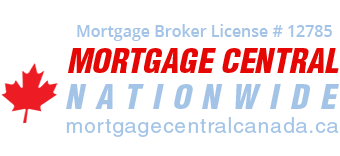Tips and Information About Getting A Second Mortgage
A second mortgage is a different thing from a first mortgage as well as refinancing of first mortgages. Unlike for those two, private loan investors and companies need to consider the equity built in the home prior to approving a second mortgage; with lesser consideration given to income source and credit score as well. This also holds true for banks and institutional lenders although compared to private lenders, they are still a lot stricter with regards to credit score and having regular employment.
Applying for a Second Mortgage
Most people apply for a second mortgage to pay off their existing debts in a process called debt consolidation. Some people apply for a second mortgage with the intent of using the money for a home renovation or paying for higher education. A small but significant portion applies for a second mortgage to use as an emergency fund. The beauty of a second mortgage is that lenders often do not ask or need to know what the loan is for as long as their requirements are met.
Cost of a Second Mortgage
Do you know that in Canada, homeowners can access as much as 80% to 90% of their home equity through a second mortgage? For homeowners who are in need of cash, that is a good amount of money that can change lives if used wisely more so that it comes at a cost of about 5% to 15% in fees and interest. Is that amount too much? Not really if you compare it to the interest and fees of personal loans and credit card loans. You’ll save upwards of half the fees and interest if you decide to use a second mortgage instead of other loans. Now, comparing to a primary mortgage, that money may seem like a lot but also note that lenders face higher risks of nonpayment and default for second mortgages. The fees are truly justified.
Paying for a Second Mortgage
Paying for a second mortgage is usually straightforward. You agree to a monthly payment that usually just covers the interest. There are prepayment options too and you can avail of that when discussed with your lender.
What happens after you’ve reached the term of your loan? Are you obligated to full right then and there? Most of the time, you’ll have the option to renew your loan for another year. If you do not wish to do so, then simply follow the payment terms laid out when you first got approved for your second mortgage.
Facts About Second Mortgages
Below is a summary of details that usually apply for a second mortgage:
- You may use up to 90% of your home equity
- Different lenders follow different procedures and have different requirements. It is possible to get approved by another lender even when turned down by a bank.
- Most second mortgages offer 1-year terms and usually charge for the interest-only before the payment term.
- Interest rates for second mortgages begin at the prime rate.
Do you want to apply for a second mortgage? Fill up this contact us form and we’ll get back to you as soon as possible. We’d be happy to address any questions you may have about getting a second mortgage.


